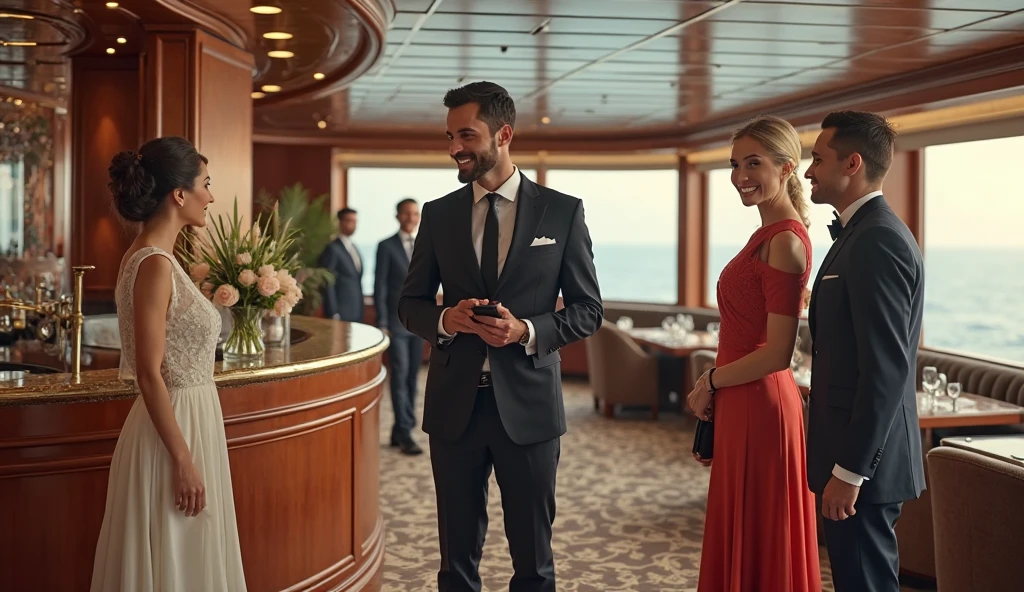In the upper echelons of hospitality, the finest service is often that which is felt rather than seen – a quiet, intuitive craft that anticipates needs and elevates an experience from merely pleasant to truly exceptional.
Britain has a long heritage of exemplary personal service, from the discreet butler of a country house to the knowledgeable concierge of a Mayfair hotel. Yet, in the modern luxury landscape, the definition of excellence has evolved beyond mere efficiency and politeness. True ‘six-star’ hospitality operates on a different plane entirely; it is the art of anticipation. This quiet craft involves not just responding to requests, but foreseeing them; not just knowing a guest’s name, but understanding their preferences, rhythms, and even their unspoken desires. It is about creating a seamless environment of such personalized comfort and ease that the guest feels utterly understood and catered for, making the intricate mechanics of the service itself almost disappear, leaving only a sense of profound wellbeing and recognition.
The distinction between service and hospitality
It is crucial to distinguish between service and hospitality, for whilst they are related, they are not the same. Service can be seen as the technical delivery of a product or action – a task performed correctly, efficiently, and politely. Hospitality, on the other hand, is about how the delivery of that service makes the recipient feel. It is fundamentally relational and emotional. A hotel can provide flawless room service, but it is true hospitality when the staff notice you have a slight cold and offer to send up honey and lemon without being asked. Service is transactional; hospitality is transformational. The former fulfils a need, whilst the latter creates a feeling of being genuinely cared for.
The psychology of anticipation
The ability to anticipate a guest’s needs is the cornerstone of elite hospitality. This is not guesswork; it is a skill honed through keen observation, careful listening, and the intelligent use of information. Remembering that a guest prefers a particular type of newspaper, enjoys their coffee at a specific time, or has an interest in a certain period of history allows for proactive, thoughtful gestures. These acts demonstrate that the guest is not just another room number, but a valued individual. This psychological comfort, the feeling of being truly ‘seen’ and understood without having to articulate every need, is perhaps the most significant luxury one can be afforded. It removes the friction from an experience, creating a sense of effortless flow and deep relaxation.
Discretion as the ultimate expression of luxury
In a world of constant connectivity and information sharing, discretion has become an invaluable commodity, particularly in the realm of high-end service. The best hospitality is often invisible. It is the art of being present when needed and absent when not, of tidying a room as if by magic, and of handling personal information with absolute sanctity. For high-profile guests, the assurance that their privacy will be rigorously protected is non-negotiable. This translates to staff who are trained in the nuances of discreet conduct, who communicate with quiet efficiency, and who understand that their role is to facilitate an experience, not to be a part of it. This understated, professional invisibility is the hallmark of a truly sophisticated service organization.
The floating sanctuary: hospitality on the high seas
Nowhere is this art of anticipatory hospitality more evident than aboard the world’s most exclusive small-ship luxury cruises (i.e. Swan Hellenic luxury cruises). With an exceptionally high staff-to-guest ratio, these vessels become floating sanctuaries of personalized care, offering a unique case study in service excellence. Here, the crew’s objective extends far beyond simple duties; it is to create a familiar yet refined home-from-home on the seas. A steward might remember how you take your morning tea from a voyage taken years prior, a chef may prepare an off-menu dish based on a passing comment made at dinner, and an expedition leader might subtly tailor a day’s excursion to a guest’s known interest in archaeology or botany. On these journeys, whether exploring the historic coastlines of the Mediterranean Sea or venturing to remote destinations like the icy wilderness of Antarctica or the culturally rich shores of Western Africa, the impeccable, intuitive service ensures that the focus remains entirely on the experience, with every need met before it is even fully formed.
The human element in a technological age
Whilst technology, such as sophisticated customer relationship management (CRM) systems, can be a powerful tool for tracking guest preferences and past behaviour, it remains just that: a tool. The true magic of elite hospitality lies in the human element. No algorithm can replace the warmth of a genuine smile, the empathy of a staff member who notices a guest is feeling tired, or the intuitive insight of a concierge who recommends a perfect, unlisted local experience. Technology can provide the data, but it takes intelligent, emotionally attuned, and exceptionally well-trained individuals to interpret that data and transform it into a meaningful, human gesture. It is this synthesis of technology and innate human perceptiveness that defines the pinnacle of modern service.
Summary
Ultimately, the zenith of personalised service is less a checklist of actions and more an art form—a quiet, constant endeavour to create an environment of perfect, unobtrusive comfort. It is defined not by grand, conspicuous gestures, but by countless small, thoughtful, and anticipatory acts that make a guest feel uniquely recognised and utterly at ease. In a world of increasing automation and impersonal interactions, this intuitive human touch, delivered with skill and discretion, remains the truest and most cherished hallmark of exceptional hospitality.

